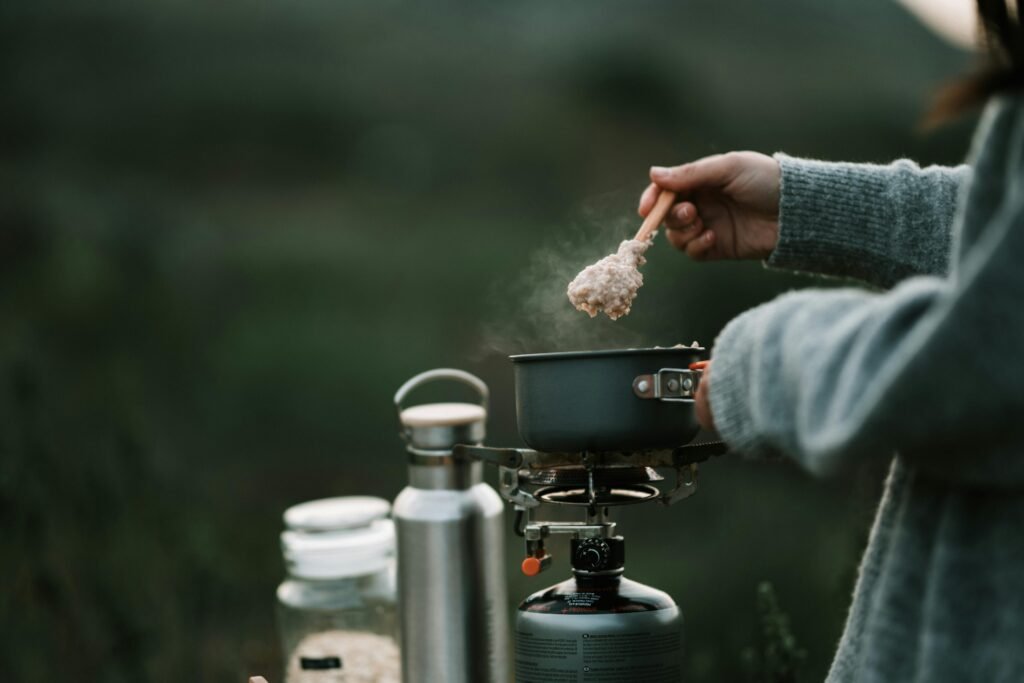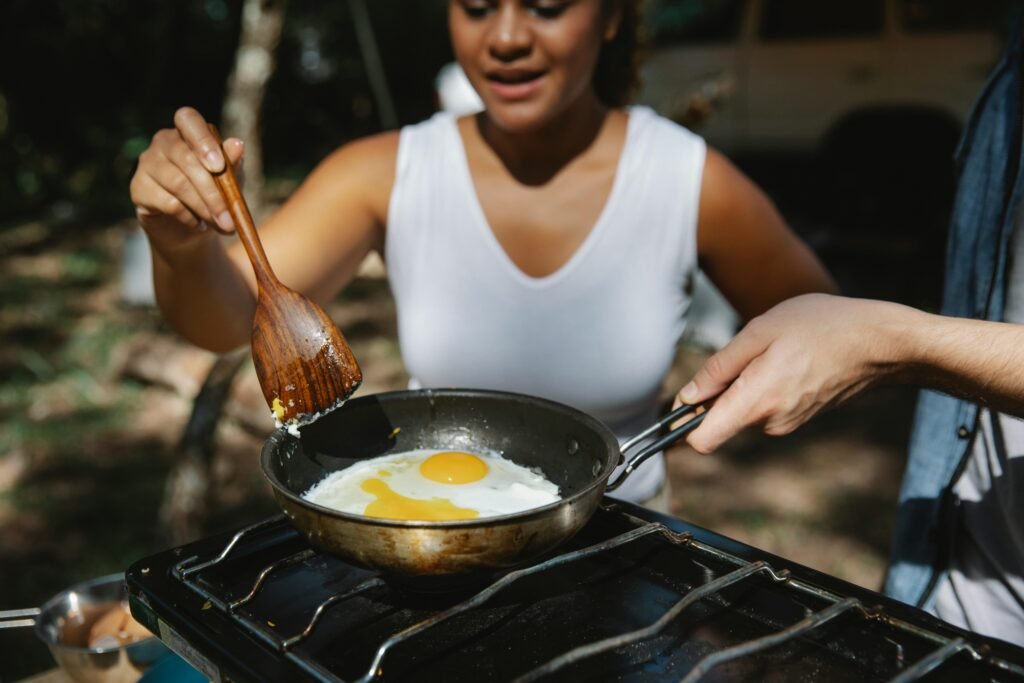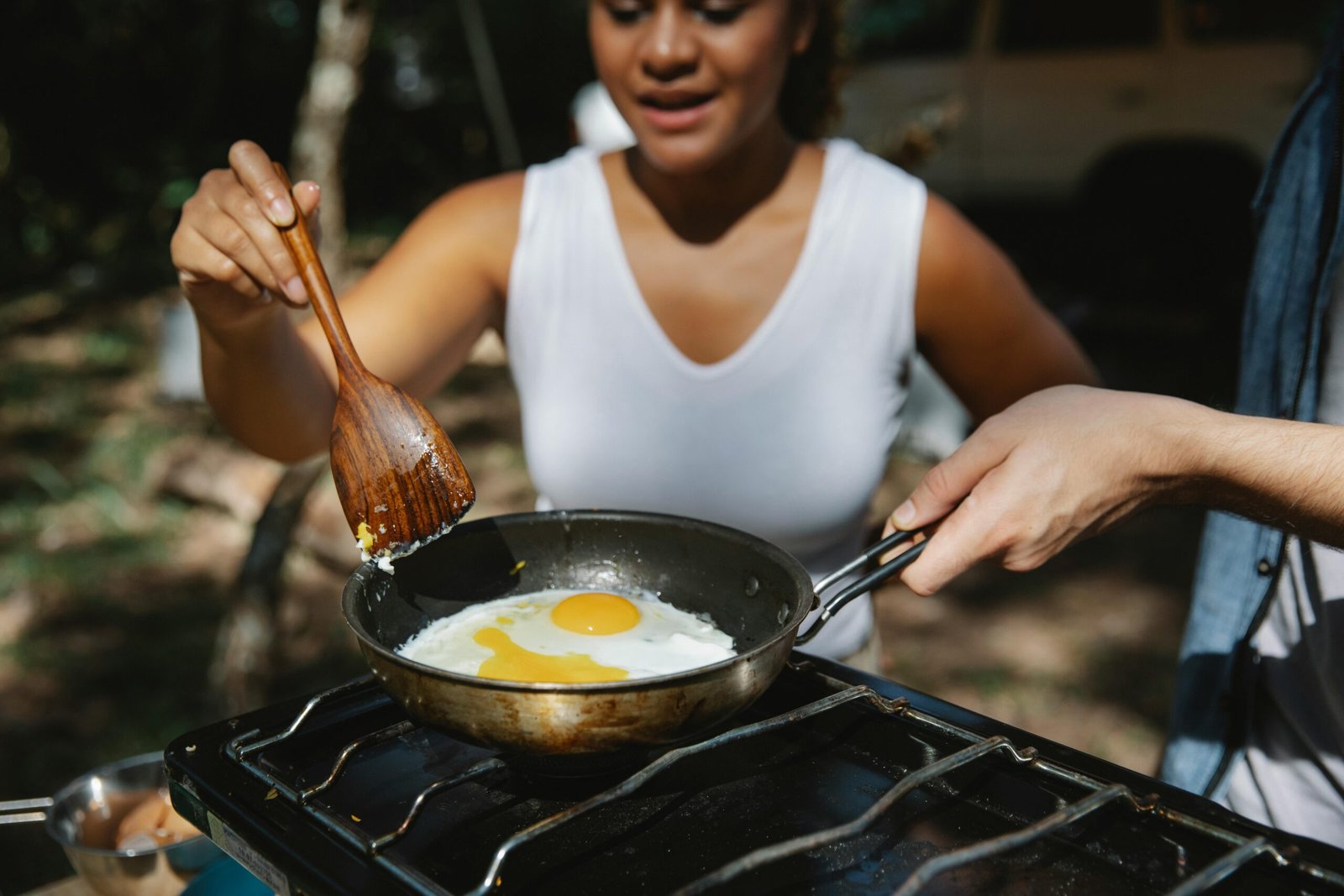Whether you’re a seasoned camper or just starting out, choosing the right camping stove is crucial for enjoying your outdoor adventures. With a plethora of options available, it can be overwhelming to decide which one best suits your needs. This comprehensive guide will help you navigate the world of camping stoves, covering everything from types to features to recommendations.

Understanding Your Camping Needs
Before diving into specific stoves, it’s essential to consider your camping style and requirements:
Solo backpacking or group camping: The number of people you’ll be cooking for will determine the stove’s size and power.
Weight and packability:
If you’re backpacking, a lightweight and compact stove is essential. For car camping, portability is less of a concern.
- Cooking style: Do you primarily need to boil water for coffee or meals, or do you prefer to cook full meals?
- Fuel type: Gas, liquid fuel, or solid fuel stoves each have their advantages and disadvantages.
- Budget: To assist with you concentrate, make an adequate budget.
Types of Camping Stoves
There are four primary types of camping stoves:
Gas Stoves
- Pros: Lightweight, efficient, easy to use, and reliable.
- Cons: Can be affected by cold weather, fuel canisters can be bulky.
Best for: Backpackers and car campers alike.
Liquid Fuel Stoves
- Pros: Versatile, can be used in cold conditions, often more fuel-efficient.
- Cons: Heavier and more complex to use than gas stoves.
Best for: Experienced campers and those who need a stove for extreme conditions.
Solid Fuel Stoves
- Pros: Lightweight, compact, and no fuel canisters needed.
- Cons: Can be slower to boil water, less efficient than gas or liquid fuel stoves.
Best for: Ultralight backpackers and emergency situations.
Electric Stoves
- Pros: Convenient, no open flame, suitable for indoor use (with proper ventilation).
- Cons: Requires a power source, heavier and bulkier than other types.
Best for: Car camping or campsites with electrical hookups.
Key Features to Consider
When choosing a camping stove, pay attention to the following features:
- Burner size and power: This determines how quickly you can boil water or cook food.
- Wind protection: Some stoves come with built-in windshields or are designed to be used with a separate windshield.
- Pot support system: Ensure the stove is compatible with your pots and pans.
- Ignition system: Piezo igniters are convenient, but matches or lighters can also be used.
- Weight and packability: Consider the stove’s size and weight when packed.
- Fuel efficiency: This is important for extending your fuel supply.
- Ease of use: A simple stove is often preferable for camping.
- Durability: A sturdy stove will withstand the rigors of outdoor use.
Best Camping Stoves UK: Recommendations
Based on popular choices and expert reviews, here are some top-rated camping stoves available in the UK:
Best Overall: Primus Essential Trail Kit
This versatile kit includes a stove, pot, and pan, making it ideal for backpackers and car campers alike. It offers excellent performance and durability.

Additional Tips
Practice at home: Before heading out on a camping trip, familiarize yourself with your stove’s operation.
- Carry extra fuel: It’s always a good idea to have a backup fuel supply.
- Properly store your stove: Store your stove in a dry place to prevent damage.
- Safety first: Always follow the manufacturer’s instructions and safety guidelines.
By carefully considering your camping needs and exploring the various options available, you can find the perfect camping stove to enhance your outdoor adventures.
FAQs About Camping Stoves
General Questions
What is the best camping stove for beginners?
A gas stove is generally recommended for beginners due to its ease of use and reliability. Models with a piezo igniter are particularly convenient.
How do I choose the right camping stove?
Consider your camping style, group size, fuel preference, weight, and budget when selecting a stove.
Can I use a camping stove indoors?
No, camping stoves should only be used outdoors in well-ventilated areas due to carbon monoxide and fire risks.
How do I clean a camping stove?
Most camping stoves can be cleaned with warm, soapy water. Avoid using harsh chemicals.
Fuel-Specific Questions
Which fuel is best for camping stoves?
The best fuel depends on your camping style and preferences. Gas is convenient, liquid fuel is versatile, and solid fuel is lightweight.
Can I mix different types of gas in a camping stove?
It’s generally not recommended to mix different types of gas in a camping stove as it can affect performance.
How do I store liquid fuel for a camping stove?
Store liquid fuel in a cool, dry place away from heat sources and ignition sources.
Safety Questions
Is it safe to use a camping stove in windy conditions?
Wind can affect stove performance and increase the risk of accidents. Use a wind shield if possible.
How do I prevent carbon monoxide poisoning from a camping stove?
Always use your camping stove outdoors in a well-ventilated area.Use it out of any limited area, including a tent.
What should I do if my camping stove catches fire?
Turn off the stove immediately if possible. Use a fire extinguisher or smother the flames with a blanket if the fire is small. If the fire is out of control, evacuate the area and call emergency services.
Conclusion
Choosing the right camping stove is essential for a successful outdoor adventure. By understanding your camping style, considering factors like weight, fuel type, and cooking needs, you can select a stove that perfectly complements your trips.
Remember, the best camping stove is the one that meets your specific requirements and enhances your overall camping experience. Whether you’re a solo backpacker seeking ultralight gear or a family camper looking for a versatile cooking solution, there’s a camping stove out there for everyone.
Invest time in researching and comparing different models to find the ideal stove for your adventures. With the right equipment, you’ll be well-prepared to enjoy delicious meals in the great outdoors.
To read more, click here.
